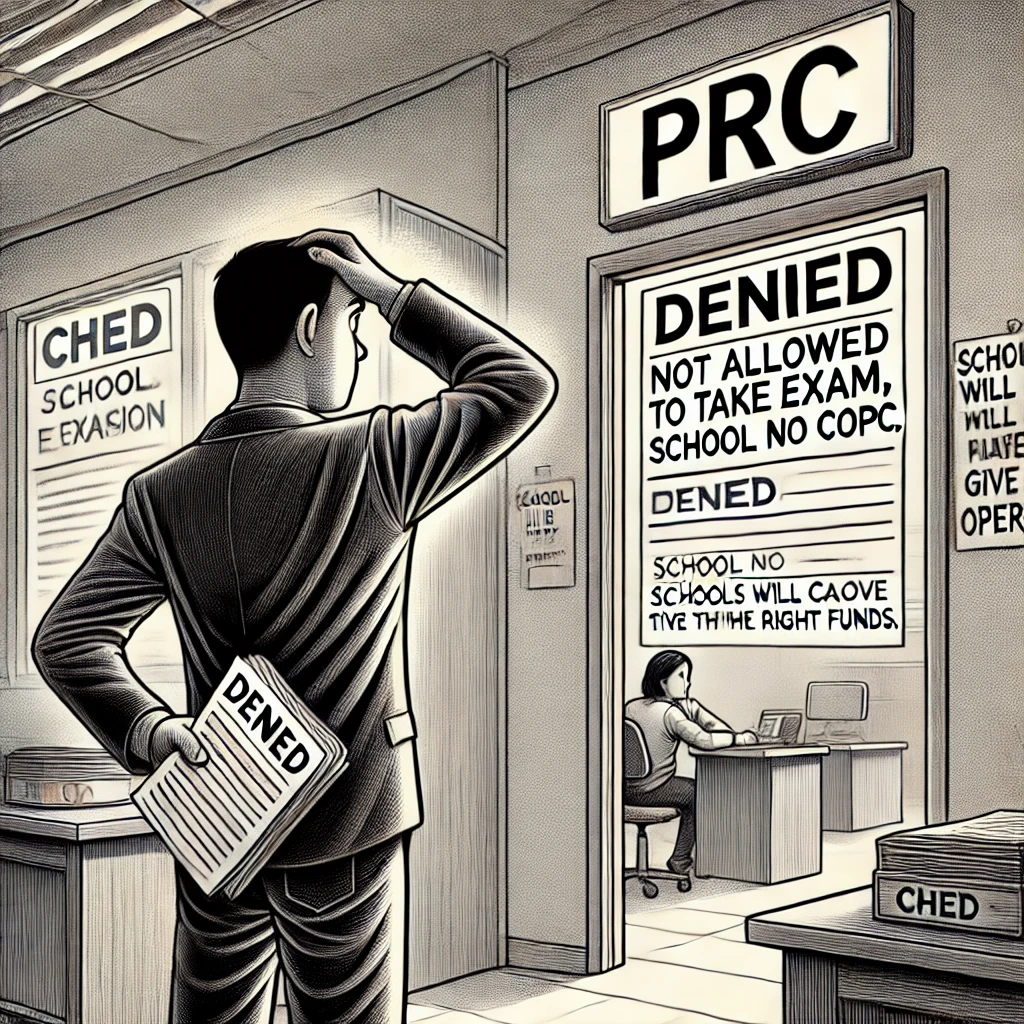The Legal and Ethical Dilemma of COPC Requirements for SUC Graduates
The disqualification of graduates from State Universities and Colleges (SUCs) from taking licensure exams due to the absence of a Certificate of Program Compliance (COPC) presents a significant legal and ethical quandary. This issue has sparked debates on institutional accountability, student rights, and regulatory frameworks. Here, we analyze the legal repercussions and propose remedies to address this pressing concern.
 Legal Principles and Issues
Legal Principles and Issues
1. Legitimate Expectation of Students
Reasonable Belief of Legitimacy: Students who enrolled in SUC programs reasonably believed they were undertaking legitimate courses, given that SUCs are government institutions authorized to operate. They relied on the institution’s public mandate and assumed compliance with regulatory standards.
Doctrine of Legitimate Expectation: Graduates could argue that they were misled into believing that their programs met all legal requirements. The state’s official endorsement of SUCs fosters this expectation, making subsequent penalties for non-compliance unjust.
2. State Liability and Mandate
State Obligation: SUCs are extensions of the government, and their operational oversight reflects the state’s responsibility to ensure compliance with educational standards. Failure to secure COPCs may indicate negligence in fulfilling this mandate, but it does not automatically invalidate the program's legitimacy.
Government Responsibility: The responsibility to comply with COPC requirements lies primarily with the institution, and by extension, the government. Students cannot be blamed for systemic failures in regulatory processes.
3. Penalizing Students for Institutional Non-Compliance
Unfair Punishment: Denying licensure opportunities penalizes students for institutional shortcomings beyond their control. This could be seen as a violation of their rights to due process and equal protection under the law.
Potential Discrimination: Graduates from non-COPC programs are treated differently, creating potential grounds for discrimination, particularly if they were unaware of the non-compliance at the time of enrollment.
Legal Repercussions
1. Class Action Lawsuits
Affected students could file class action lawsuits against SUCs and CHED for damages, citing financial loss, emotional distress, and rights violations. Such cases could compel greater accountability from institutions and regulatory bodies.
2. Petition to the Courts
Students may seek judicial remedies such as a writ of mandamus to compel CHED and the Professional Regulation Commission (PRC) to allow them to take licensure exams. This argument rests on the premise that retroactive penalties violate constitutional protections.
3. Administrative Accountability
Institutional administrators could face administrative charges for failing to ensure program compliance with CHED’s COPC requirements. Such accountability measures could prevent future lapses.
4. Public Sector Liability
If the issue is deemed systemic, the state could be held liable under the doctrine of accountability for public education. This could lead to reparative actions for affected students.
Legal Remedies
1. Legislative Intervention
Lawmakers can introduce legislation directing CHED and PRC to address this issue. This may include retroactive recognition of degrees from non-COPC programs during specific periods, safeguarding affected graduates’ licensure eligibility.
2. Transitional or Grace Period
CHED and PRC could implement policies granting a grace period for SUCs to secure COPCs without penalizing students. Such measures would ensure fairness while maintaining regulatory standards.
3. Legal Arguments for Students
Students can argue that:
The SUC’s programs were authorized when they enrolled and graduated.
They acted in good faith and should not be penalized for institutional oversight.
Recommendations for Stakeholders
CHED and PRC:
Issue clear guidelines on the treatment of graduates from non-COPC programs.
Consider amnesty or transitional policies to prevent undue penalties for students.
Students:
Form alliances to collectively raise concerns with CHED, PRC, and lawmakers.
Seek legal advice to explore remedies against SUCs or regulatory agencies.
SUCs:
Expedite the process of securing COPCs for all non-compliant programs.
Advocate for transitional measures to protect graduates’ licensure eligibility.
Conclusion
The situation highlights the tension between regulatory compliance and the rights of students who trust in the legitimacy of government institutions. Penalizing graduates for institutional failures raises serious legal and ethical concerns. CHED, PRC, and SUCs must collaborate to resolve this fairly, ensuring students’ rights are upheld while maintaining regulatory integrity. Moving forward, systemic reforms are essential to prevent similar issues and restore confidence in the Philippine higher education system.
